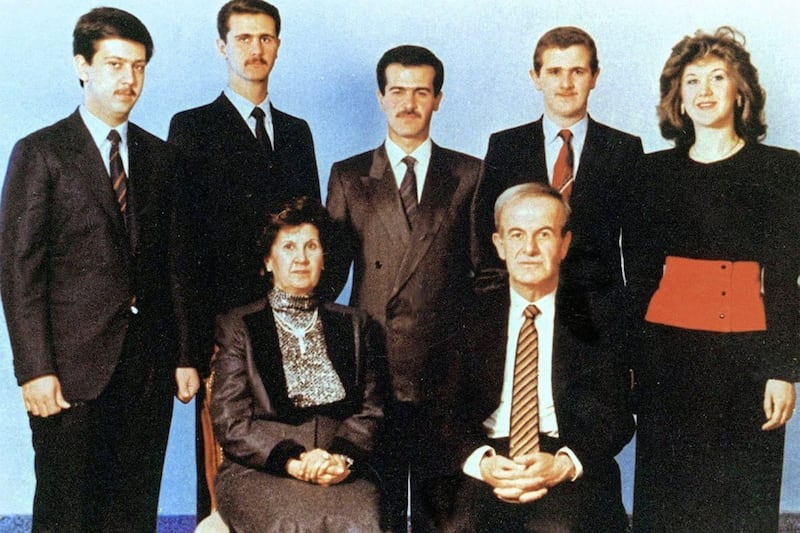Dangerous Dynasty: House of Assad, BBC 2, Tuesday at 9pm
Hannah Arendt coined the phrase “the banality of evil” after studying Adolf Eichmann at his trial in the early 1960s.
She concluded that Eichmann was not a Jew-hating fanatic or a psychopath, but an unintelligent man who convinced himself that he must follow the orders of his leader. That such an ordinary man could be responsible for such horrors was shocking.
That is not in any way to compare the Holocaust to the actions of Bashar al-Assad, but this powerful new series does expose the extraordinary ordinariness of Bashar and leaves you wondering how this apparent gentle eye surgeon is cable of inflicting such horror on his own people.
The first of a three-part series, Dangerous Dynasty traced the unlikely route to power of Bashar, one of six children of military dictator Hafez al-Assad.
We first saw Bashar as an ungainly, shy prince working at a London hospital. His colleagues had no idea of his family background until a rich Middle-Eastern family recognised him one day in the surgery.
It was around this time that Bashar met his English-born wife (to Syrian parents) Asma.
But Bashar’s plan for his life changed in an instant in 1994 when his older brother Bassel - who had been anointed as the next Syrian president - died in a car accident.
Bashar and his bride to be (they married months later) were summoned back to Damascus where he would be groomed for office.
His father Hafez, who was convinced a coup against him was always imminent, had displayed his ruthlessness to his family many times.
In 1982, Hafez reacted in a way that is now familiar to us in response to a Muslim Brotherhood uprising in Hama, near Syria’s Mediterranean coast.
Under the direction of his brother Rifaat, Syrian government forces bombed Hama for three weeks killing an estimated 20,000 people, most of them innocent civilians.
The other great lesson Bashar learned from his father before his death in 2000 was that foreigners were not to be trusted. One western diplomat described the Assad method of dealing with the lines of prime ministers and presidents who arrived in Damascus.
It was the “hamburger trick”. Allow your visitors to think you will do everything they want but before you sell them the sandwich remove the meat at the last moment. Hafez had played this game with success against six US presidents.
After Bashar was sworn in as president he initially appeared to be open to reform and allowed critical Syrian media for the first time, but then a cataclysmic event changed everything.
After September 11, 2001, almost all Middle Eastern leaders promised support to an American government determined to take its revenge.
But Bashar was his father’s son and although he swore allegiance he secretly feared that the subsequent invasion of neighbouring Iraq was dangerous for him. He believed that Syria might be next on the US list, so his emptied his own prisons of Islamic fundamentalists, armed them and sent them across the border to harry the Americans and British.
It was a fatal mistake. It turned the US against him and it wasn’t long before the Sunni militants he had released returned to eastern Syria in an attempt to set up the Islamic State of Iraq and Syria.
Other non-jihadi groups also rebelled and one of the most horrific and complicated civil wars of the last century was born.
Bashar bombed, gassed and killed his own people in their tens of thousands.
If you watch anything on television in the coming weeks, make a date to see Dangerous Dynasty and witness the banality of evil.






